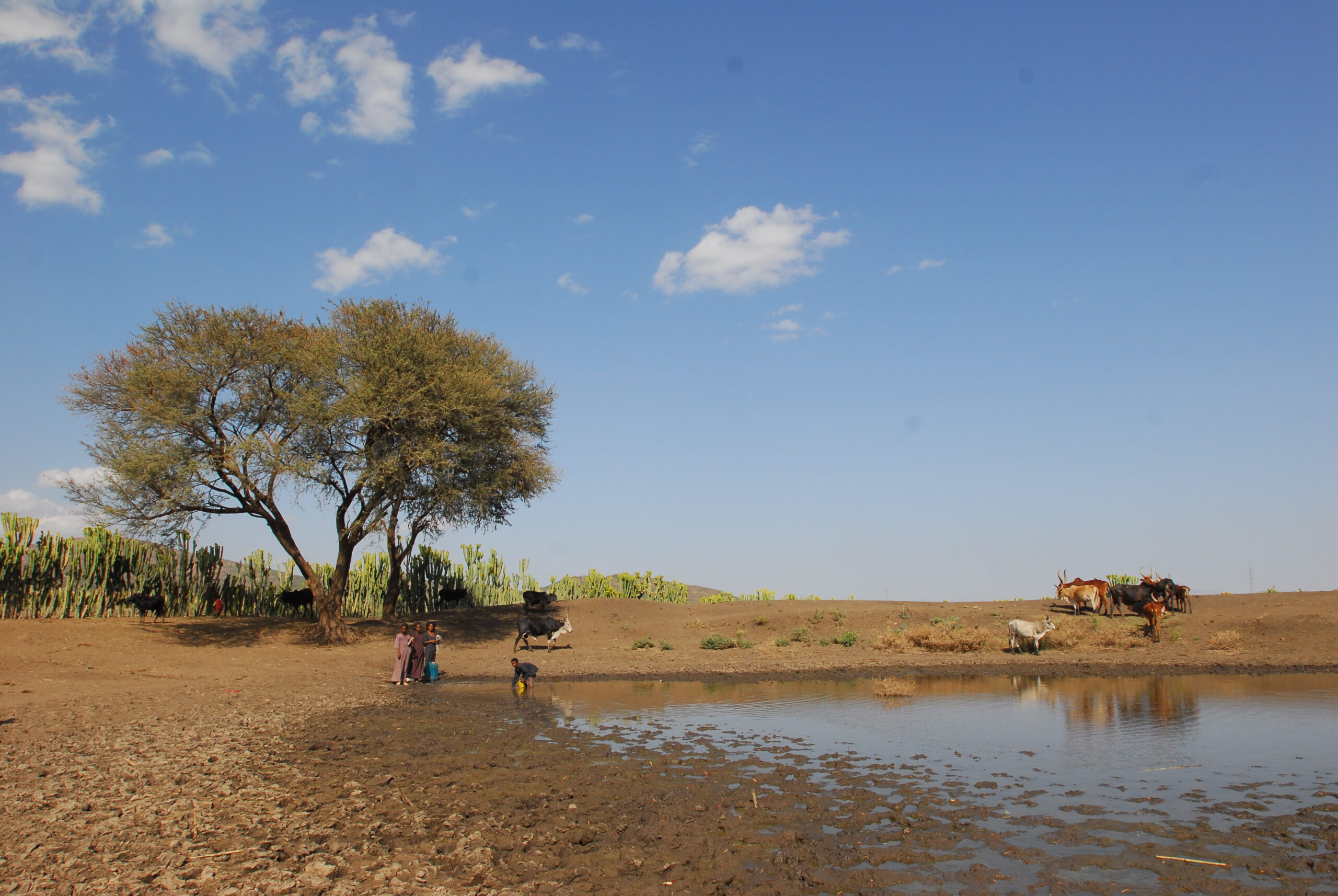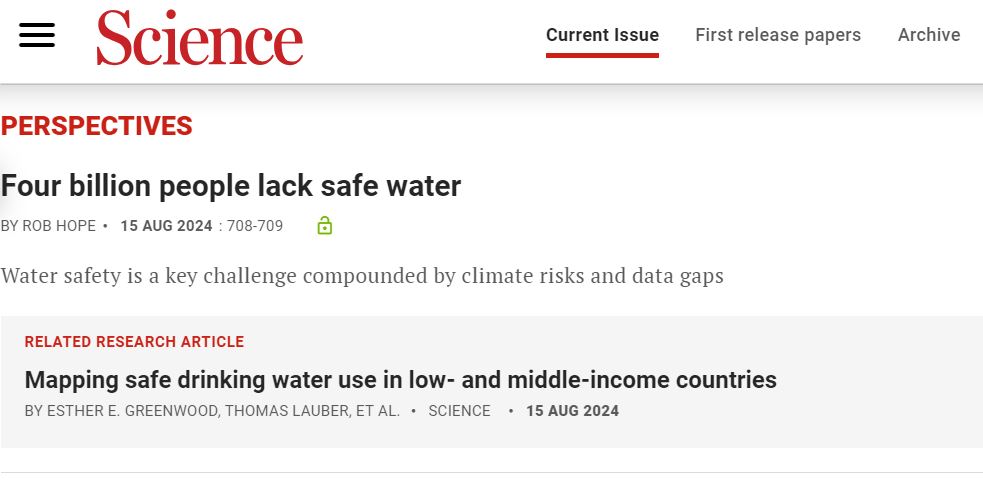by Professor Rob Hope, REACH Director, University of Oxford
It is now estimated that 4 billion people lack safe drinking water globally. This is double the number of people estimated in 2020. What’s happened?
This new estimate is based on a modelling approach by Esther Greenwood and colleagues trying to amplify the existing but limited data sources. The study published in Science exploits the increasing array of remote sensing data to usefully consider climatic and environmental conditions, in addition to the standard and imperfect household surveys. The team finds water quality is the key challenge globally for providing safe water. This assessment tallies with Oxford’s empirical research and partnerships which indicate that water quality is an inadequately funded and regulation issue, particularly for rural water supplies.
It’s clear that the impacts of climate change casts a large shadow. The analysis agrees with wider work on how droughts, floods and pollution are creating significant water quality and operational impacts manifested most acutely for people’s drinking water supplies. Yet, as ever, I would caution at blaming climate change as a unique scapegoat. Professional service providers are able to guarantee reliability in most rural contexts as evidenced by Uptime’s work in 16 countries. This creates resilience at a low cost and also creates the type of data this study would benefit from – long-term, high quality, spatially distributed operational and financial metrics.
The study has inevitable limitations. Public facilities are not modelled, partly because there is little or no data available. This would likely increase the estimate – if we properly monitored drinking water services in the schools, clinics and hospitals. COVID-19 drew attention to this, and indeed, created some level of panic and action, but perhaps we are back to complacency again. Progress with the SafePani model in Bangladesh shows these challenges can be addressed quickly and at minimal cost (<USD1 per person per year) if government takes a lead.
Lastly – turning to scale, finance and inequalities – global studies are great but service delivery and accountability is a national matter. Data, regulation and service delivery need strengthening in most countries globally. Finance needs to link building (capital spend) with services (operational spend). Globally, we have wasted billions in building infrastructure that is not maintained.
4 billion people is a sobering number. There is a danger that policy and investments focus on reaching the most people at the lowest cost, and do not focus on those most in need in more difficult environments.
Read Professor Rob Hope’s Perspective piece in Science, 16th August, 2024: Four Billion People Lack Safe Water


